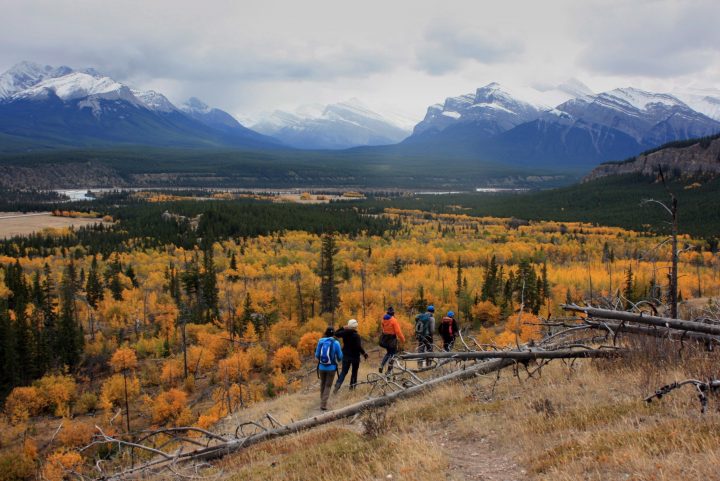Alberta’s new environment minister says he will scrap the previous government’s proposed plan for protected areas in the western part of the province.

Last November, the NDP government announced eight new parks covering 4,000 square kilometres in what is known as Bighorn Country along the eastern edges of Banff and Jasper national parks.
Environment Minister Jason Nixon says the United Conservative Party government will not go ahead with that proposal.
“We were very clear that the NDP’s plan for the Bighorn was flawed,” Nixon said Tuesday in an interview with The Canadian Press.
“It was the worst consultation process that I’ve seen. Second, that there was a tremendous amount of economic concerns and questions that were not answered. There was also some environmental questions and concerns that were not answered.
“All of the First Nations communities in the area and all of the municipalities in the area have outright rejected the NDP’s plan.”
Residents and municipal officials have raised concerns about how the proposal might affect oil and gas exploration, the forestry industry and off-road vehicle use.
The NDP’s plan called for a variety of permitted activities and provided $40 million over five years for campsites and other infrastructure.
Watch below: Ongoing Global News coverage of the proposed plan for Bighorn Country
Off-highway vehicles, horse packing and hunting would have continued, although with new restrictions. Grazing leases would have remained and no existing trails would have been closed.
Shannon Phillips, who was environment minister under the previous NDP government, called the news disappointing for Albertans.

Get daily National news
“Clearly this new minister is not interested in conservation, which is not surprising considering his record,” she said in a statement.
Phillips said a majority of Albertans supported protecting the headwaters of the North Saskatchewan River, which provides drinking water to more than a million people in central and northern Alberta _ including Edmonton.
LISTEN: Environment Minister Jason Nixon joins Danielle Smith to discuss the future of Bighorn country
The Canadian Parks and Wilderness Society was also concerned by the UCP government’s plan to cancel the proposal.
“It’s a short-sighted decision,” said Kecia Kerr of the organization’s northern Alberta chapter.
“The idea for protection of this area has a very, very long history that goes back decades. The concept to protect the headwaters of the North Saskatchewan river is not something that just came out of the previous government.”
Kerr said it’s not only the source of drinking water for Albertans, but it’s also an important area for many different species.
“The protection of this area is really just long overdue,” she said.
Nixon said his government will return to the North Saskatchewan regional planning process and move forward from that perspective.
“The headwaters portion of this — most of it exists in the national parks and in what’s called public land use zones,” he said. “It’s important that we recognize there are some mechanisms in place and those will continue.”
He said he wants to see both an economic and environmental assessment of the proposal to better understand the challenges.
“We still have to make the right environmental decision but we should understand all of the factors that are taking place and be able to answer those questions for the community,” said Nixon.
As an example, he said, there were concerns about some of the developments within the NDP plan and whether they would have negative effects on wildlife.
Overall, Nixon said there needs to be better consultation.
Kerr said she hopes that includes a careful review of the previous work and incorporating it into the new plan.
“A lot of resources have already gone into this and it would be a shame for all that time and financial investment to be wasted,” she said.
“We look forward to working with the government on the development of a North Saskatchewan Regional Plan that includes appropriate legislative protection of the headwaters of this important watershed.”












Comments